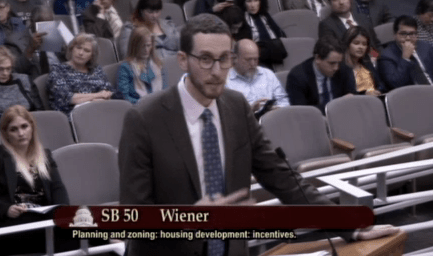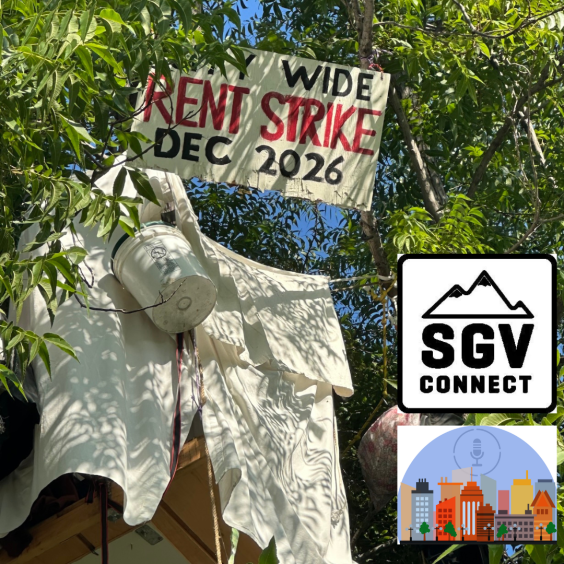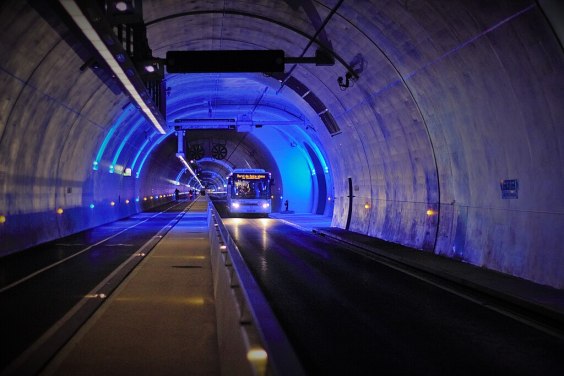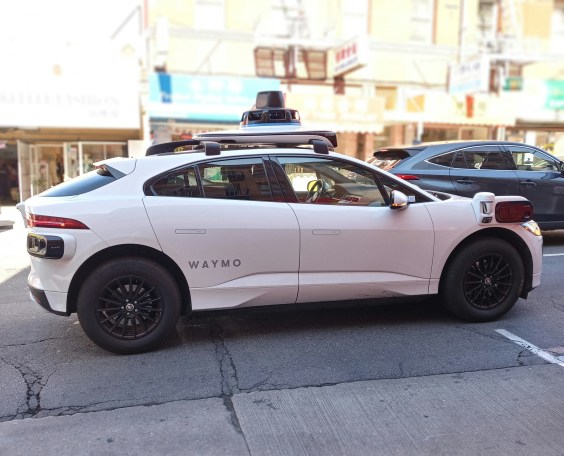A controversial bill from Senator Scott Wiener (D-San Francisco) that would rezone every city in California to a higher density near transit had its first hearing yesterday in the Senate Housing Committee, which he chairs. Not surprisingly, it passed, although the 9-1 vote in favor was notable, given opposition to the bill from several quarters.
Several other bills aimed at increasing housing in California also passed at the hearing, notably S.B. 4 from Senators Mike McGuire (D-Healdsburg) and Jim Beall (D-Campbell).
Both bills aim to upzone housing density near major transit stops, but they differ in the details of how that would be achieved. The bills' authors noted several times that they were "laying off each others' bills" until they had more time to work out differences between the two.
"Our goal is for them not to conflict," said Wiener. "We are both committed to doing everything we can to reach a resolution, because our constituents are suffering. Most of them don't really care whether the elected officials who fix the problem are local or state; they just want us to fix it."
McGuire said their plan is to come to a resolution by April 24, when both bills will be heard in the Senate Finance Committee.
But first they will both be heard by the Governance and Finance Committee, which is chaired by McGuire.
No one disputed the premise behind the bills, which is that California needs to add more housing, as quickly as possible, but there is widespread disagreement about how to do so. Wiener's bill, S.B. 50, is a return to last session's S.B 827, which aimed for the same goal but treated displacement concerns as an afterthought. This time around, the senator made an effort to include equity advocates from the beginning, but they still don't feel heard.
Support and opposition to the bill runs the gamut, with tenant advocates, housing activists and developers, business interests, and planners on both sides of the table. Strong support was voiced by Habitat for Humanity, the California Housing Alliance, the California Chamber of Commerce, and AARP, among many others. Opponents ranged from a real estate broker who said the bill would "destroy [her] single-family neighborhood" and "discriminate" against her suburban neighbors to low-income residents of Oakland and Berkeley who are at risk of displacement from rising rents.
A coalition of more than fifty organizations working on equity issues recently sent Wiener a letter expressing concerns with S.B. 50 [PDF], saying it does not go far enough to protect tenants nor to provide affordable housing. Without those protections, they say, the threat of displacement will only grow worse.
Among their concerns was an in-lieu fee that was recently added to the bill. That is, instead of including affordable units, developers would be allowed to pay a fee, which the organizations say would make it harder to build affordable housing near transit. Senator Wiener said that he had added the in-lieu option at the behest of affordable housing developers, who rely on those fees to finance their developments.
That single conflict is one small demonstration of how complex the state's housing problems are. At the hearing, Wiener emphasized several times that the zoning changes the bill focuses on "are not the only impediment to building more housing, and S.B. 50 is not the only solution."
But, he said, "the fundamental obstacle to having enough housing for everyone who needs it is hyper low-density zoning that bans small apartment buildings and affordable housing throughout California," said Wiener. "That makes it impossible to close the 3.5 million home deficit; it perpetuates segregation, pushes people out to far-flung suburbs, makes lengthy commutes, increases emissions, and makes housing outrageously expensive."
According to his calculations, current zoning restrictions make it illegal to build dense housing in the vast majority of California, and the only places with enough room to build new single-family homes are in outlying areas. Adding housing under current zoning "would only create more sprawl, clog freeways, push people into poverty and homelessness, and spike displacement. Plus, we will never meet climate goals if we continue to build exclusively single-family housing."
He insists that the solution is to start by building--in this case, allowing--more housing. Both he and Senator Nancy Skinner (D-Berkeley) spoke of displacement pressures in their cities, where housing supply is tight. "Scarcity drives up prices, it drives people out, it creates homelessness," said Skinner. "Yes, we have to have inclusionary policies and displacement protections, but we also have to have an increase in supply."
"It's important to talk about what causes gentrification," said Wiener. "It's complicated, but one of the main factors is simply not having enough housing. While of course we have to be careful, we have to include anti-displacement measures, but the heart of displacement is explosive housing costs, because we have made it impossible to build enough housing."
Senator Wiener has pledged to continue working with opponents to come to a mutual resolution, but some were not convinced. A representative from the Mission Economic Development Agency charged that the bill basically constitutes a rezone of the entire state "without a study. We don't know what the result will be," she said. "The last thing I want to see is the Latino community in [San Francisco's] Mission District and Boyle Heights being reduced to a plaque on the ground saying 'We were here.' "
Senator John Moorlach (R-Costa Mesa) asked whether the bill's focus on transit-rich areas was the right one, given recent declines in transit ridership.
"We want to make it easier for people to live near transit and closer to their jobs," responded Wiener. "Some people will drive, but you want to give people the option not to drive. There is no single reason for the declining ridership rates, but one is that transit ridership will struggle if you don't allow density near transit hubs. You also need to make it easier for low income people to live near transit, because they are the most likely to use it."
"If you only allow single family homes to be built," he added, "it makes it harder for people to live near transit. We have to recommit to improving public transportation, and then letting people have a shot at living close to it."
In the end, the bill passed on a 9-1 vote, with Senator Patricia Bates (R-Laguna Niguel) voting no. "I can't support this bill because of its parking restrictions," she said. "Parking issues drive safety concerns in my communities."
McGuire and Beall's bill, S.B. 4, also passed, 8-1.
Other bills discussed and voted on at yesterday's hearing include:
- S.B. 6 from Beall and McGuire: Would create a state database of land available for housing development. Passed 11-0
- S.B. 18 from Skinner, the Keep Californians Housed Act: Outlines Foreclosure protections and relocation assistance for tenants. Passed 8-0
- S.B. 744 from Senator Anna Caballero (D-Salinas), the No Place Like Home Program: Would streamline approval under the California Environmental Quality Act for supportive housing for homeless people who suffer from mental illness. Senator Wiener, in summing up the bill, said, "If we can streamline CEQA for sports arenas--which we do--then we can streamline it for homeless housing as well." Passed 8-1. Senator Bob Wieckowski (D-Fremont) voted against it because he thought the language was too broad.






